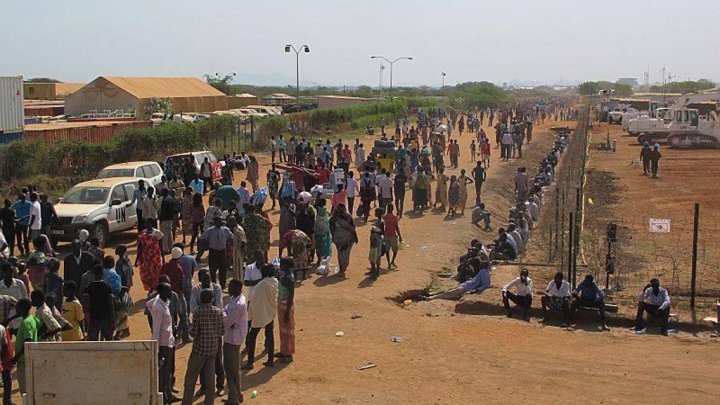A spectrum of Sudanese political and armed opposition groups put aside differences to sign a unity agreement Wednesday night that they hope will strengthen a group’s hand in talks with the regime in two days.
 A spectrum of Sudanese political and armed opposition groups put aside differences to sign a unity agreement Wednesday night that they hope will strengthen a group's hand in talks with the regime in two days.
A spectrum of Sudanese political and armed opposition groups put aside differences to sign a unity agreement Wednesday night that they hope will strengthen a group's hand in talks with the regime in two days.
The government has categorically refused to deal with its armed and unarmed adversaries at the same forum and the opposition has been unable to overcome differences to present a unified front.
The signatories hope it will send a message to the government that it must deal with the opposition as one, although some large parties did not sign the agreement.
"Solving Sudan's problems... would not be possible without (the opposition) reaching a unified political platform," said the statement, which suggests the closest coordination between the political and armed groups since the secession of South Sudan in 2011.
The major political groups participating were the Umma party and the National Consensus Forces, an alliance of mostly secular parties.
They were joined by a group representing the armed movements of three war-torn regions: Darfur, South Kordofan and Blue Nile and a group representing civil society.
But despite the agreement, the government broadly expects it will not change the status quo and a spokesman said "there would be a price" to pay for cooperating with the rebels.
The government is negotiating with the Sudan People's Liberation Movement-North, and the opposition hopes its hand will be strengthened by the agreement in negotiations set to resume on Friday.
When the south seceded, it took with it both the oil wealth and the biggest counterweight to the ruling coalition in the Sudan People's Liberation Movement, which now rules South Sudan.
Clashes have been reported for the last several days in Sudan as the SPLM-N negotiations with the government are suspended.